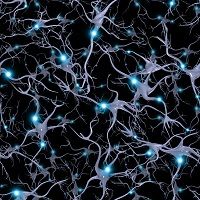A Review of Painful Diabetic Neuropathy Treatments
A review of painful diabetic neuropathy treatments concluded that, while there is no one true effective treatment for all forms of neuropathic pain, many options are still to be explored.

Despite the high burden of painful diabetic neuropathy (PDN), it is under diagnosed and under treated, according to research published in Therapeutic Advances in Chronic Disease.
Researchers from the University of Manchester conducted a review of recent studies examining the efficacy of drugs used in the treatment of PDN in order to evaluate the most appropriate ones. PDN treatment is commonly categorized into 3 groups: intensive glycemic control and risk factor management, treatments based on pathogenetic mechanisms, and symptomatic pain management. Although as many as 1 in 5 diabetes patients may suffer from PDN, there are only 3 medications approved by the US Food and Drug Administration (FDA) for the treatment of PDN — duloxetine, pregabalin (both approved in 2004), and tapentadol (approved in 2012). However, many proposed treatments are undergoing studies, though the researchers commented there is an increasing need for even more studies to evaluate these options in order to maximize pain relief and improve patients’ quality of life.
Some studies have demonstrated benefits of glucose control through insulin in type 1 diabetes patients in preventing diabetic sensorimotor polyneuropathy (DSPN), the most common type of PDN. The results of the study were less clear for type 2 diabetes patients. A conducted on patients with pancreatic transplants found improvements of PDN following the transplant; however, another study suggested there was no effect on nerve conduction velocity and autonomic function. Improvements were also shown in a study of a 6 week placebo controlled benfotiamine treatment on 165 patients.
Non steroidal anti inflammatory drugs (NSAIDs) are often prescribed for short term analgesia, usually when PDN is not suspected. Even though their use has not been extensively evaluated, in some treatment experiments, NSAIDs were effective. Tricyclic agents (TCAs) like amitriptyline, desipramine, and imipramine have shown efficacy in PDN patients, even though they are noted for their high side effect frequency. Serotonin norepinephrine reuptake inhibitors (SNRI) were FDA approved for the treatment of PDN in 2004 and it, as well as other SNRIs, have been reported as efficacious across many studies, and major side effects were rare. Carbamazepine, oxcarbazepine, topiramate were initially proven to be effective for the treatment of PDN, but have later been discredited due to side effects and other reasons, though gabapentin and pregabalin are typically effective. The authors considered opioid treatment for PDN controversial, in addition to its lack of established risk benefit analyses.
Non pharmacological approaches have been developed for PDN patients who are unresponsive to conventional therapy techniques, or find those methods inadequate for relief. These forms of relief include electrical stimulation, which has found to be more effective than a placebo treatment. Another option was acupuncture, which demonstrated improvement in outcomes over a placebo acupuncture treatment.
“It is evident from the broad range of drugs that have been evaluated in PDN that there is no consensus about a single most effective drug, and monotherapy rarely provides adequate pain relief,” the authors concluded while stressing that further and more specific research is needed. “Additionally, most studies compare therapies against placebo or sham treatment and there is a need for comparative studies between different pharmacological agents.”